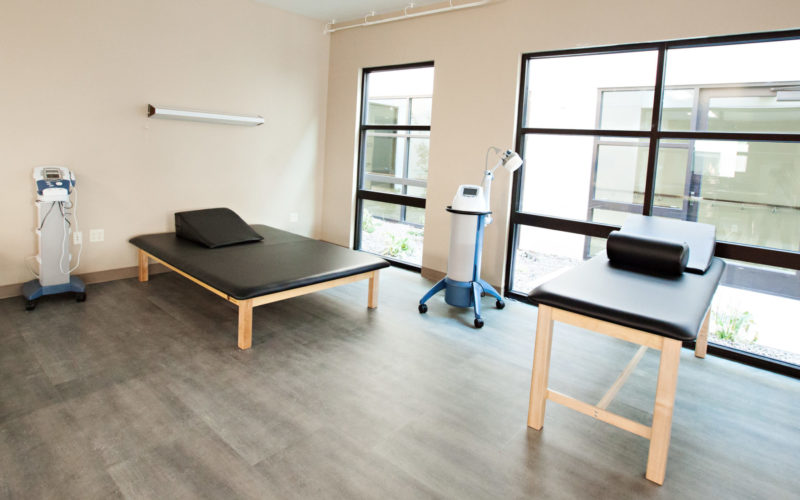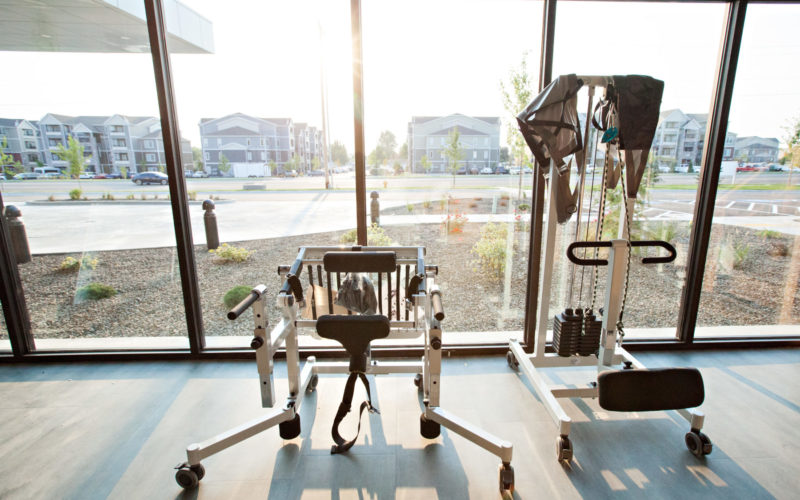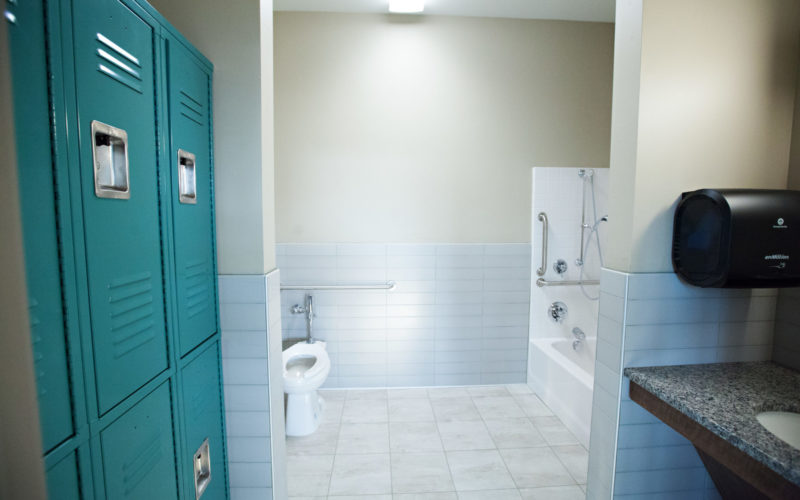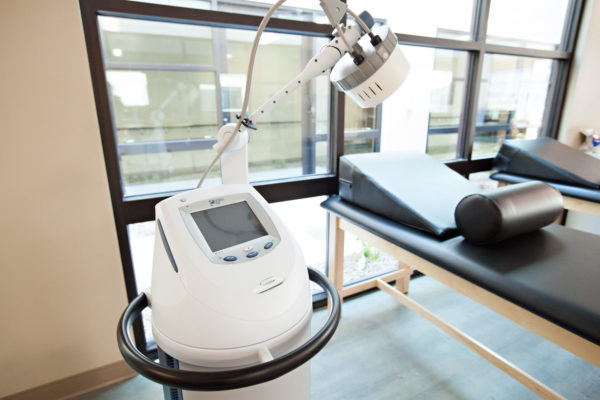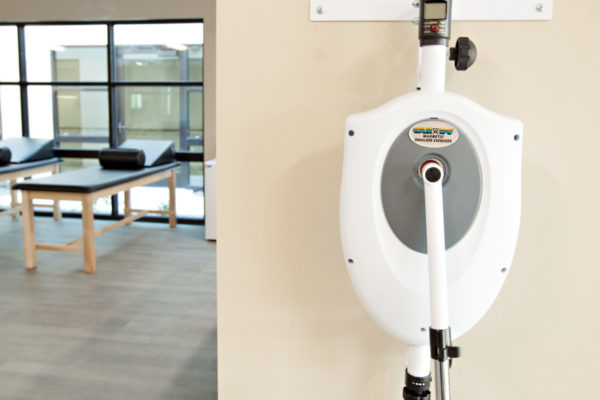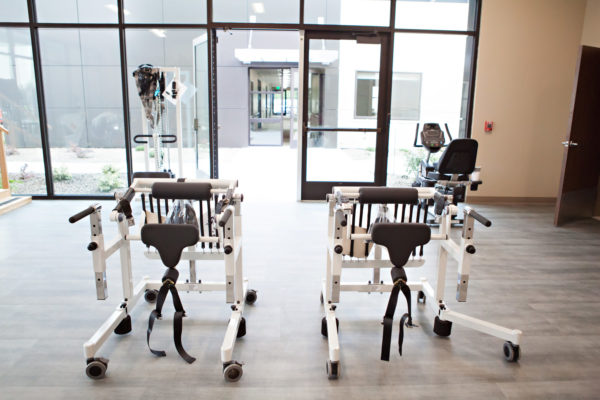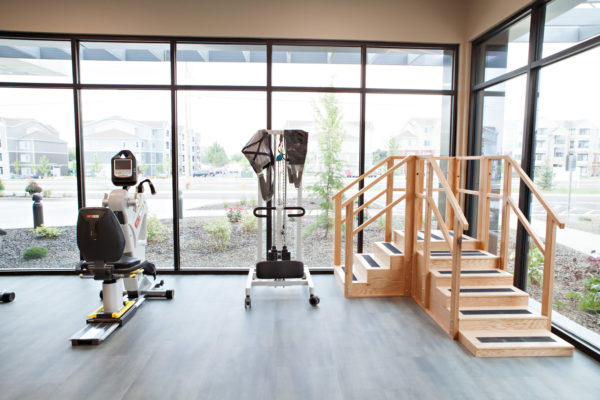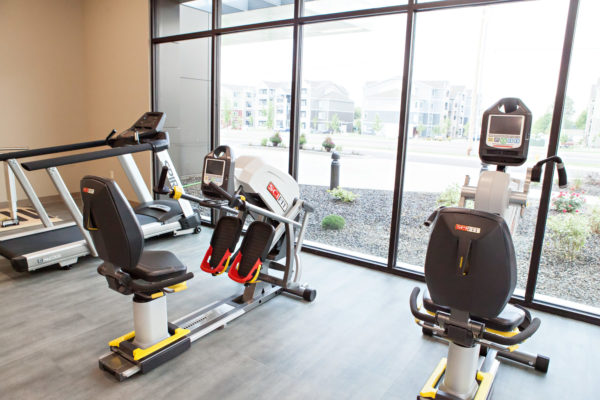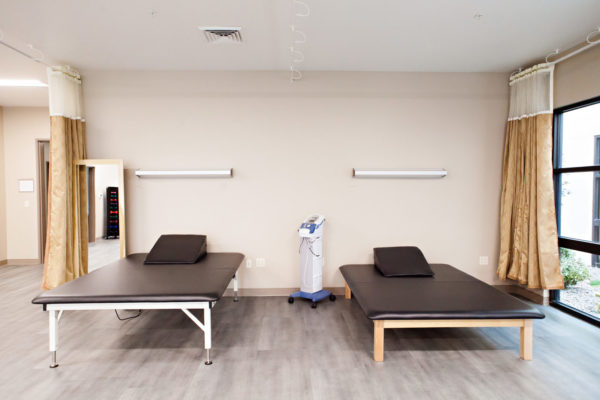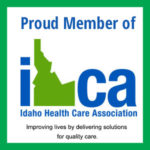Cascadia of Boise focuses on patient-centered therapy services. Our Nampa and Boise facilities house the only NeuroGyms in the state. NeuroGym is a state-of- the-art system that allows the user to initiate movement rather than the system itself, rewiring the brain and speeding the recovery process.
With our in-house rehabilitation gym, and a specialized outdoor rehab garden, we utilize a comprehensive approach of Physical, Occupational, and Speech Therapies. By doing so, our team can work together with the patient to achieve the highest results possible. In addition to exceptional rehabilitation, we are partnered with an outstanding team of physicians that specialize in rehabilitation to ensure the most desired outcomes for each patient are achieved. Cascadia is pleased to offer rehabilitation therapy seven days a week by highly qualified and licensed personnel.
Ventilator and Trach Care
Cascadia of Boise offers 24-hour respiratory care coverage to meet you or your loved one’s respiratory needs. Our Skilled Respiratory Therapists will work under the direction of Physicians and Physician Extenders to provide the best possible outcome. The clinical team, consisting of the Physician, Nurses, Respiratory Therapists, and Rehabilitative Therapy Staff will work together for success in each plan of care.
Physical Therapy
Physical Therapy addresses illnesses or injuries that limit a person’s abilities to move and perform functional activities in their daily lives through evaluation, diagnosis and treatment of their impairments. There are a variety of reasons that individuals require physical therapy services which Include rehabilitation for orthopedic injuries, Post-surgical, Cardiopulmonary, Neurological, and Vestibular. Physical Therapy emphasis is on the following:
- Modalities: Heat/cold packs, Electrical stimulation, Ultrasound, Diathermy to assist with pain, neuromuscular re-education and strengthening.
- Gait training with assessment of appropriate assistive devices, level/unlevel surfaces, stair training to assist in returning safely to the community.
- Neuromuscular re-education to promote balance
- Fall prevention strategies/education
- Range of Motion re-training
- Therapeutic exercises to promote increased strength /endurance of the core and lower extremity musculature.
- Therapeutic activities including: Bed mobility and transfer training utilizing proper body mechanics
- Manual therapy
- Vestibular Assessment
- Contracture Management
- Patient and family education
Occupational Therapy
Occupational Therapy (OT) is responsible for the evaluation and treatment of patient’s with deficits resulting from multiple reasons including: stroke, brain injury, orthopedic injuries, general weakness from various diseases. OT addresses the following areas:
- Assist patient’s to regain ability to perform Activities of daily living (ADLs) such as dressing, grooming, bathing
- Assist patient’s to regain ability to perform IADLs such as cooking and cleaning
- Upper extremity strength and coordination
- Positioning and contracture management
- Fine motor skills
- Low Vision
- Identification and implementation of appropriate adaptive equipment
- Functional Mobility necessary for safety with dressing, grooming, bathing
Speech Therapy
The Speech Language Pathologist (SLP) addresses communication, cognitive and swallowing deficits. These deficits result from a variety of factors/diseases including: stroke, brain injury, Parkinson’s Disease and other neurogenic disorders, and dementia. The SLP is responsible for assessment, treatment and education/training for:
- Aphasia (the loss of ability to understand or express speech, caused by brain damage)
- Apraxia (disorder that affects the ability to form words. Unable to or have difficulties saying what you want to say correctly and consistently. It is not due to weakness or paralysis, but due to the inability to motor plan/sequence)
- Dysarthria (decreased articulatory precision of speech, unclear speech)
- Dysphagia (difficulty or discomfort swallowing)
- Cognitive Deficits: memory, orientation, attention, reasoning, problem solving, executive function, money management, medication management

